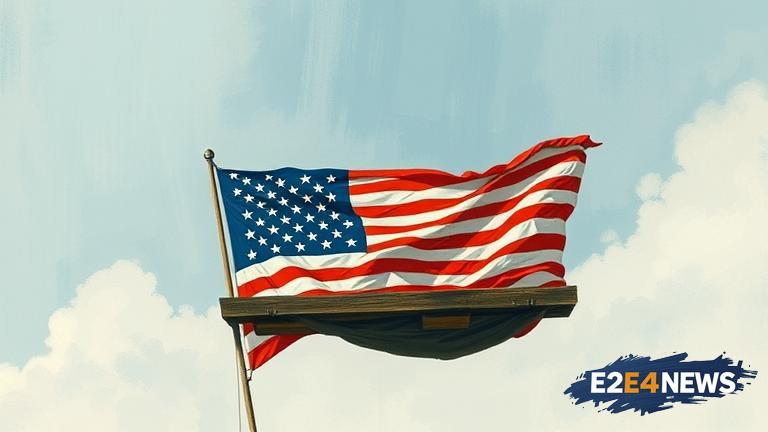The United States has long been a nation of diverse faiths, with people from various backgrounds and beliefs coming together to form a unique cultural landscape. However, the relationship between faith and national identity has become increasingly complicated in recent years. On one hand, faith plays a significant role in the lives of many Americans, with numerous people identifying as religious and attending services regularly. On the other hand, the concept of separation of church and state is deeply ingrained in American society, with the Constitution explicitly prohibiting the establishment of a national religion. This delicate balance between personal conviction and national identity is a recurring theme in American history, with debates over issues such as school prayer, religious symbols on public property, and faith-based initiatives sparking intense controversy. Despite these challenges, faith remains an essential aspect of American life, with many people relying on their spiritual beliefs to guide their moral compass and inform their decisions. The First Amendment’s guarantee of freedom of religion has allowed people of all faiths to practice their beliefs without fear of persecution, creating a vibrant and diverse religious landscape. However, this freedom also raises questions about the limits of religious expression and the role of faith in public life. Some argue that faith should play a more prominent role in American society, with religious values informing public policy and guiding national decisions. Others contend that faith should be a strictly private matter, with individuals free to practice their beliefs but not imposing them on others. The issue of faith in America is further complicated by the country’s history of religious intolerance and persecution, with marginalized communities often facing discrimination and exclusion. Nevertheless, the United States has also been a beacon of hope and freedom for people of all faiths, with many individuals and families fleeing persecution and finding refuge on American shores. The intersection of faith and national identity is also reflected in the country’s cultural and artistic heritage, with numerous works of literature, art, and music exploring themes of spirituality and devotion. From the Puritan settlers of New England to the modern-day megachurches of the Sun Belt, faith has played a profound role in shaping American culture and society. However, the increasing secularization of American life has led some to question the relevance of faith in the modern era, with many young people opting out of traditional religious institutions and seeking alternative forms of spiritual expression. Despite these trends, faith remains a vital and dynamic force in American life, with people of all ages and backgrounds continuing to seek guidance, comfort, and community through their spiritual beliefs. The relationship between faith and national identity is also influenced by the country’s global engagements, with American foreign policy often intersecting with religious and cultural issues around the world. As the United States navigates an increasingly complex and interconnected world, the role of faith in American life is likely to remain a topic of ongoing debate and discussion. Ultimately, the delicate balance between personal conviction and national identity will continue to shape the American experience, with faith playing a profound and enduring role in the lives of individuals and the nation as a whole. The future of faith in America will depend on the ability of individuals and institutions to navigate these complexities, fostering a culture of tolerance, understanding, and mutual respect. By embracing the diversity of American faith experiences and promoting a nuanced understanding of the role of religion in public life, the United States can continue to thrive as a beacon of freedom and opportunity for people of all backgrounds and beliefs. The importance of faith in American life cannot be overstated, with spiritual beliefs informing everything from personal relationships to public policy. As the country moves forward, it is essential to recognize the significance of faith in shaping American identity and culture, while also respecting the boundaries between personal conviction and national identity. By doing so, the United States can ensure that faith remains a vibrant and dynamic force in American life, promoting a culture of inclusivity, diversity, and mutual respect.
